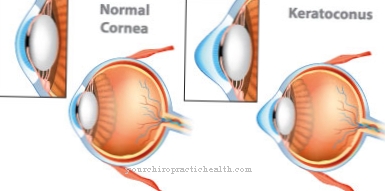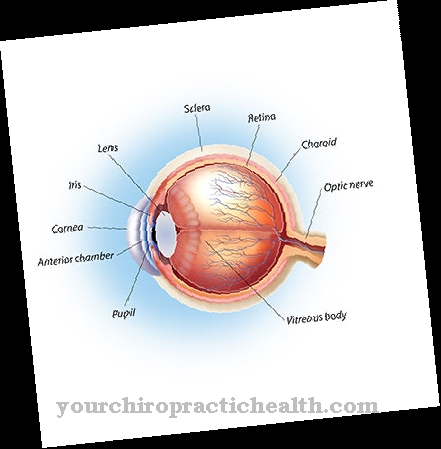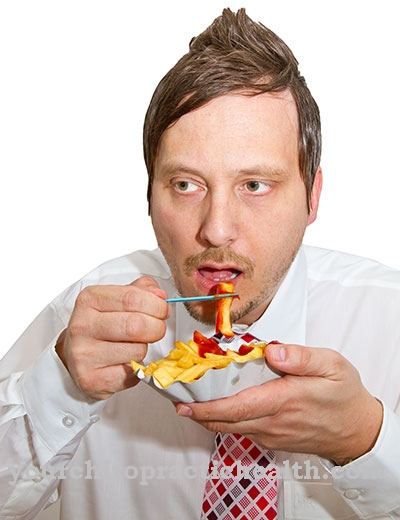A Muscle hardening or Myogelosis is a hardening in the area of the most diverse muscles. This leads to painful hardening that can be felt as knots or bulges. A doctor should only be consulted in the event of severe pain and repeated occurrence. As a home remedy for muscle hardening, heat treatments such as sauna or warm baths are recommended. Light massages are also helpful as a treatment.
What is muscle hardening?

A Muscle hardening or Myogelosis is a strong and usually painful tension in the muscles. In most cases, it arises from excessive physical activity. Such an overload leads to permanent tension in the muscles. However, muscle hardening can also result from pinching nerves or osteoarthritis.
Athletes in particular are familiar with these or similar situations with certainty: after a strenuous long-distance run or marathon shortly before the finish line, you suddenly feel a sharp stabbing pain in your thigh, lower leg or calf.
However, muscle hardening can also occur in the upper arms in the back or in the shoulder area. In many cases, the pain subsides after a short recovery period. However, muscle hardening can persist over a long period of time and become a great torture.
causes
But how does one come about Muscle hardening? Muscle hardening results from long-lasting, strong tension in the muscle fibers. As a result of this tension, the muscle fibers strongly compress the fine capillaries in the muscles.
As a result, the blood supply to them is limited and inflammation occurs, which makes the muscles tense. This in turn is the cause of this cramp-like pain in the affected parts of the body. One speaks here of muscle hardening.
Symptoms, ailments & signs
On the one hand, muscle hardening can be felt. Those affected feel muscle parts that appear rock hard. In addition to these clearly palpable signs, numerous symptoms speak for muscle hardening. Pain in the area of the hardened muscle can take different forms.
So the pain can be felt as dull as well as acrid. Hardened muscles in the area of the jaw, for example, cause some affected people to feel dull. Others report of repeatedly shooting in, radiating pain.
Hardened muscles in the neck area can cause discomfort in the back as well as headaches. Depending on where the muscles are hardened, the symptoms can also be very diffuse and accordingly cannot always be clearly assigned to the actually hardened muscle. Problems with the chest muscles can manifest themselves, for example, in unclear abdominal discomfort and also cause digestive problems.
Careful diagnosis is particularly important because the symptoms of muscle tension can be very different. On the one hand, complaints that come from hardened muscles rarely get better on their own without targeted treatment. The stressed muscles tend to harden more and more and thus cause more and more complaints. On the other hand, if the symptoms persist, it must be ruled out as soon as possible that the symptoms stem from another organic disease.
Course of disease
Takes a Muscle hardening Despite the home remedies mentioned below and the preventive measures for several days, a doctor should definitely be consulted, because it could also be a nervous disease.
After a medical examination, the loosening and relaxation of the muscles can be promoted with anti-inflammatory drugs or magnesium supplements. If the doctor cannot find any other medical cause, muscle hardening is usually due to excessive or one-sided training.
In this case, the exercise program should be carefully analyzed so that the reason for the overloading of the muscles can be determined. Then the training has to be changed in such a way that the muscles are loaded evenly and a renewed muscle hardening is avoided.
Complications
Due to the hardening of the muscles, those affected primarily suffer from very severe and, above all, from sharp pain. This pain can significantly reduce and restrict the quality of life of those affected. Likewise, there are also restrictions in everyday life, whereby the performance of certain work or sports is no longer possible due to the hardening of the muscles.
The exercise of the job can also be restricted by the hardened muscles. Furthermore, pain at rest at night can lead to significant sleep disorders and thus to depression or general irritation of the patient. Movement restrictions also occur. The exact restrictions and complications of muscle hardening also depend heavily on the muscle concerned.
Muscle hardening can lead to significant pain and further consequential damage, especially if the muscles are subjected to further heavy loads. For this reason, a doctor should be consulted if the pain persists. The treatment of muscle hardening is usually done with the help of massages or heat treatments.
There are no further complications or complaints and in most cases the disease progresses positively. The life expectancy of the patient is usually not limited or reduced by the hardening of the muscles.
When should you go to the doctor?
A hardened muscle does not always have to be treated medically. In a large number of cases, those affected can achieve relief from the symptoms without the assistance of a doctor. A sufficient supply of heat and the consumption of enough non-alcoholic liquids lead to an improvement in the discomfort. The affected person should take care of his organism overall and not expose it to heavy loads again.
Bad posture and a crooked posture should also be avoided. The areas in which the muscles are hardened can be loosened up with your fingers or other aids using circular movements. In addition, it is recommended to practice sports that contribute to a better supply of the muscle fibers and a balance through the general movement sequences. By swimming, for example, relief and freedom from symptoms can be achieved.
If the muscle hardening persists or if it continues to increase despite all efforts, a doctor should be consulted. If the person concerned does not manage to achieve a significant improvement in their health within a few days or if further complaints arise, they need help. Headaches, insomnia and long-term tilt of the pelvis or shoulders can occur and require treatment. In particular, damage to the skeletal system can lead to a manifestation of the impairments that have lifelong consequences.
Doctors & therapists in your area
Treatment & Therapy
The most suitable method for an already created Muscle hardening to counteract this is a heat treatment and sauna. Warm or hot baths, warm compresses or the targeted application of a hot water bottle on the cramped areas are highly recommended. Warmth promotes blood circulation and also relieves severe tension.
A very helpful measure against muscle hardening is also a massage of the hardened muscles. During an existing muscle hardening, the usual training volume should definitely be reduced. Sports activities in spite of a hardened muscle can aggravate it and in the worst case further damage the muscle.
You can find your medication here
➔ Medicines against tension and muscle painOutlook & forecast
A muscle hardening offers a good prognosis. The ailment can be treated with massages, rest and specific physiotherapy. The muscle hardening often dissolves by itself. Until then, rest and avoid strenuous activities so as not to jeopardize recovery. The quality of life is limited by the hardening of the muscles, but the patients can continue to go about their usual everyday life without major restrictions being expected. Even sporting activities do not have to be stopped completely, as long as sufficient rest periods are taken into account.
The prognosis is worse with recurring muscle hardening. Occasionally there is a serious muscle disorder that needs treatment first. Eliminating the causes of the muscle hardening is decisive for the prognosis. Medication and lifestyle changes contribute to the rapid resolution of muscle hardening. Acute pain is relieved with pain therapy, trigger point therapy, or other typical treatment methods. The aim of the therapy is to stimulate blood flow and to dissolve the hardening of the muscles. The general practitioner or sports medicine specialist provides the exact prognosis with regard to the severity of the muscle hardening. The triggers must also be included in the forecast.
prevention

But it doesn't have to be pronounced first Muscle hardening come. There are some helpful tips to prevent muscle hardening. Even when it's still cold outside, athletes should always drink enough fluids. Sometimes muscle hardening is also caused by a lack of magnesium in the body. It is therefore advisable to take one magnesium tablet dissolved in water every day.
The right warm-up training before any sporting activity also counteracts muscle hardening, because it stimulates muscle activity. Especially when a marathon or other major sports tournament is pending, you should warm up sufficiently and stretch your muscles.
Wearing the right clothing also prevents muscle hardening. If the body sweats a lot during intense exertion, clothing should not be too airy, because the body cools down very quickly when you sweat. This damages the muscles. Experts therefore recommend warmer clothing, as the heat promotes blood circulation.
Aftercare
In the case of muscle hardening, in most cases only a few and only very limited measures of direct follow-up care are available to the person affected, whereby a quick and above all very early diagnosis of this disease is necessary. Therefore, the person affected should ideally see a doctor at the first signs and symptoms of the disease in order to prevent further complications and complaints from occurring.
In most cases, patients are dependent on bed rest, whereby the affected muscles should be spared. Exhausting or physical activity is not recommended in order not to unnecessarily strain the body. In many cases, those affected are therefore dependent on the help and support of their own families. Loving conversations can have a positive effect on the psychological state of the person concerned.
Furthermore, the measures of physiotherapy and physiotherapy are often necessary. Many of the exercises can be repeated in your own home, which significantly increases the mobility of the person concerned. The hardening of the muscles does not reduce the life expectancy of the person affected and can usually be treated relatively well again.
You can do that yourself
If the muscles become stiff, it is important to reduce or stop sporting activities. To quickly relax the affected muscle again, short stretching exercises are recommended. However, this should never go as far as the pain threshold, as serious damage to the tissue can occur here under certain circumstances. Then relaxation is appropriate. Any kind of stress can make the condition worse or slow healing.
A 15-minute bath with warm water quickly relaxes the muscles. Warming compresses from the pharmacy also loosen the muscle thoroughly. Further heat treatments are saunas and red light irradiation. Depending on the weather, exposure to the sun can also help relieve pain. Local massages on the muscles concerned are another way of relieving tension. Anti-inflammatory ointments can also be gently massaged in to relieve pain. This is particularly recommended in the evening, just before going to bed.
It is important to take in enough fluid during the entire self-treatment to let the tension subside. For long-term success against muscle hardening, however, a balanced magnesium balance in the body is the best treatment and preventive measure. Magnesium supplements and foods with a particularly high magnesium content are ideal for this.




.jpg)
.jpg)







.jpg)

.jpg)
.jpg)











.jpg)